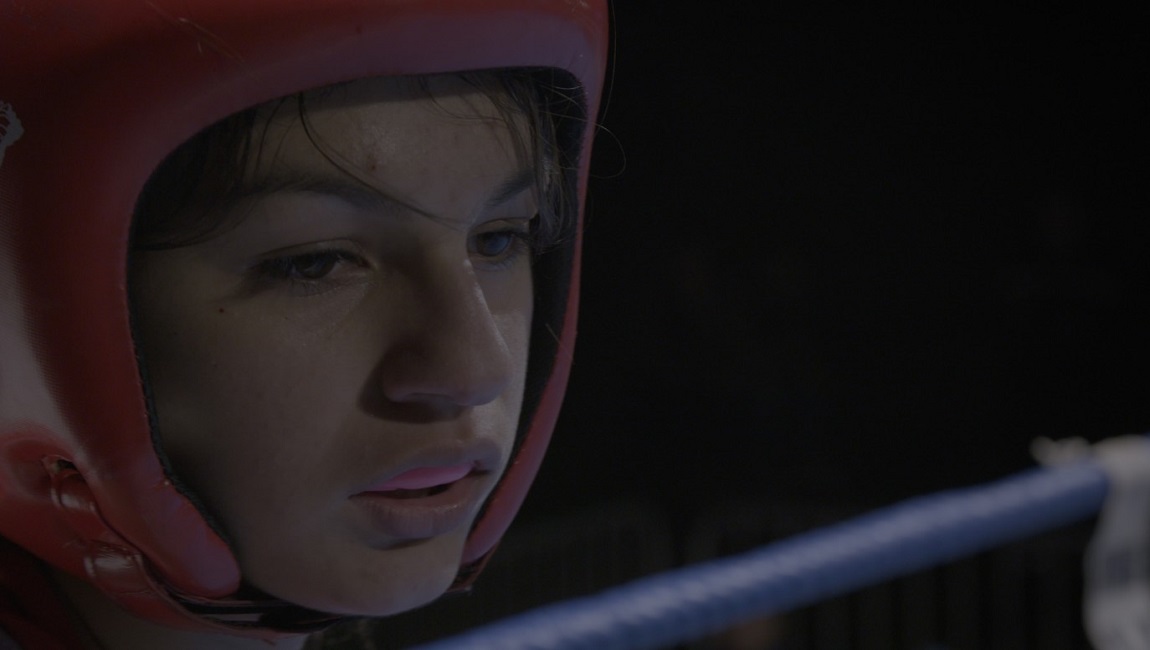Whether or not you like Terry Gilliam’s films, you have to feel some kind of affinity for the man himself, what with his dogged determination in the face of projects both woefully unrealized (The Man Who Killed Don Quixote) and tragically unlucky (2009’s The Imaginarium of Dr. Parnassus). He tests this affinity, though, with films that are difficult to admire, not for their controversial ideas or aesthetic rigor, but for their showy whimsicality and muddled, store-bought philosophies. His latest, the sci-fi confection The Zero Theorem, is no different. Highly reminiscent of the director’s widely admired Brazil, the film introduces a wildly detailed dystopian future where advertising, handheld computers, and menial labor rule the day. For all its vivid trimmings, though, it gradually dissolves into a mass of awkward humor, even more awkward pacing, and vaguely defined didacticism.
The story takes place in a distant future obviously modeled after our current times, where people visit virtual shrinks, digital billboards recognize who’s walking down the street, and parishioners gather at the Church of Batman the Redeemer — the kind of satirical jabs more sardonically expressed and presciently realized by Mike Judge in his subversive cult comedy Idiocracy. Christoph Waltz stars as the reclusive Qohen Leth, who’s either a scientist, a software engineer, a computer programmer, or a combination of the three; he works as an “entity cruncher” in a megalomaniac company called Mancom, a tech conglomerate that straps its workers to video game-esque machines and has them plug numbers into various theorems. Tormented by numerous phobias and generally averse to society as a whole, Qohen asks the company’s head honcho, the duly named Management (Matt Damon), if he can work from home, which happens to be a decrepit cathedral, a hulking metaphor for the film’s post-spiritual milieu. Qohen is granted his request under the condition he work on something called the Zero Theorem, an equation said to calculate nothing less than the very purpose of the universe.
For all its vivid trimmings, though, it gradually dissolves into a mass of awkward humor, even more awkward pacing, and vaguely defined didacticism.
Qohen’s attempts to crack the code drive him crazier than he already is; the only thing keeping him afloat is his anticipation of a phone call from a mysterious person who called once before and promised to share with him the meaning of life, but before Qohen could hear, he dropped the phone and lost the call. True to form, Gilliam broaches these faux-existentialist quandaries with ambitious production design and comically broad performances. The world of The Zero Theorem is painstakingly realized, from the bright and busy city scenery to Mancom’s Orwell-meets-Facebook-offices workspace, impressive when you consider the film’s shoestring budget and rushed shooting schedule. Gilliam has also found the ideal leading man in Waltz, whose playful over-acting fits the director’s bonkers sensibilities. Together, they create palpable tension as we watch Qohen push toward a breaking point he seems to have already crossed. David Thewlis and Tilda Swinton round out the supporting cast, and both are similarly eager to fulfill the director’s bizarro vision.
Just as we’ve come to know Gilliam’s elaborate production design and flamboyant idiosyncrasies, we’ve come to expect certain deficiencies in storytelling and thematic cohesion. The Zero Theorem’s narrative and character elements take a backseat to limp humor — some weirdly misogynistic sex jokes and one too many halfhearted jabs at consumer culture — that reinforces the film’s central idea that our technological society has rejected emotions, spirituality, and everything else that makes us human. If only he hadn’t already tread similar ground in Brazil, this might have possibly felt revelatory. Alas, Theorem is brimming with winks to that film and his others, like The Fisher King and Fear and Loathing in Las Vegas. The film has also shares the same rushed, claptrap denouement of Tideland and The Imaginarium of Dr. Parnassus, the sort of cheap “is it all in his head?” hoodwink used by poor storytellers like Gilliam. The film doesn’t so much end as run out of steam, rendering the preceding action little more than entertaining at best and irrelevant at worse.








No Comments